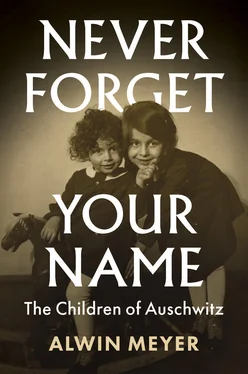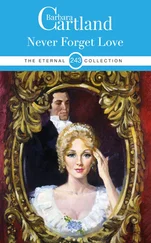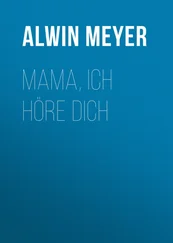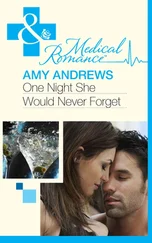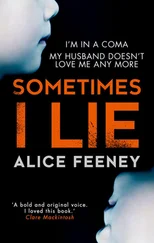Two months later, at the end of May 1938, Hungary promulgated the first anti-Jewish laws on the German model. 61
In the summer holidays, Gábor went practically every day to the lake to swim. A stream flowed through Békéscsaba and fed the pool. The family maid brought the boy his lunch in a multi-level container. ‘I ate my lunch there.’ He was even in the Békéscsaba swimming club, ‘as long as I was allowed as a Jew’.
One summer – ‘it must have been the early 1940s’ – the locals had to share the pool with some members of the Hitler Youth from Germany. ‘They spent their holidays in our region.’ Prior to that, the Hungarian National Socialist Arrow Cross party, founded in 1937, had made a petition to the town. They demanded that Jews be banned from using the lake and steam bath. In 1941, it was rejected by the town of Békéscsaba, which claimed that there was no legal basis for the prohibition. 62
Meanwhile, discrimination against the Hungarian Jews continued. In August 1941, the third antisemitic Jewish law entered into force, banning marriages between Jews and non-Jews. Extramarital intimate relationships between Jews and non-Jews with Hungarian nationality were penalized as ‘race defilement’. 63
‘Yes, we lived with anti-Jewish laws.’ But the Hirsch family were barely aware of their precarious situation. There were many Jewish refugees in Békéscsaba from Slovakia and Poland. They were invited for lunch on Shabbat by members of the Jewish community, including the Hirsch family. ‘The refugees told of the violence against Jews in their countries. They related terrible stories.’
Gábor’s father was optimistic. As late as 1942, he planned and built a new house on a nearby street. One corner remained incomplete. János Hirsch feared that he might not be able to keep his shop on the high street because he was a Jew. If that was the case, he wanted to turn the corner of the building into a shop, which could be done quite quickly, and to transfer his business there.
Jiří and Zdeněk Steiner ‘On the day the Germans entered Prague, we were at home with my mother’, says Jiří Steiner. ‘German cars with yellow number plates were driving past.’ They looked out onto the street, hidden behind the curtains, ‘so that no one could see us’. ‘Mama began to cry again and we were very afraid.’ Then the lives of the Jewish inhabitants – as in all of the countries annexed by Germany – became more and more restricted and increasingly intolerable. Jiří and Zdeněk were not allowed to attend school. ‘If we had gold or silver, we had to hand it in.’
The looting by the Nazis knew no limits. In the six years of occupation, the National Bank of Bohemia and Moravia alone sent nearly 43 tonnes of pure gold currency to Nazi Germany. 64
It is estimated that there were around 55,000 Jews living in Prague in 1939. 65A report for the period from 15 March 1939 to 1 October 1941, presented by the Central Office for Jewish Emigration set up by the Nazis in Prague, stated:
Since the incorporation of the territory of Bohemia and Moravia into Greater Germany, the Jews have been completely excluded from public, economic and social life.… The Jews, who have become unemployed and without means, are increasingly used for labour, particularly in construction, civil and railway engineering, regulatory work and all kinds of unskilled labour on building sites and in factories, and in agriculture and forestry.… Their bank accounts have been frozen and they are only allowed to withdraw a certain amount each month (RM 150.00 per person). 66
Pavel Steiner’s business was also liquidated. He was given a job in the Jewish community but earned nothing. The family lived from savings and what Jana Steiner, their mother, earned by selling home-made textile flowers.
One of the most incisive measures was the police regulation of 14 September 1941 stating that henceforth Jewish children, women and men had to wear a ‘Jewish star’. Many other prohibitions rapidly followed: Jews were no longer allowed to enter libraries, swimming pools, cinemas, parks, certain squares and streets, sporting events, theatre and entertainment locales. They were allowed to shop only during strictly controlled hours. There was a general curfew after 8 p.m. They were only permitted to enter certain hospital departments, post offices and tram carriages. The use of boats, rental cars, sleeping and dining cars and even radios was completely forbidden. Jews were also excluded from all clubs and associations. 67
There were notices everywhere saying ‘No Jews allowed’. After August 1940, Jewish children were not allowed to attend state schools. 68Six to eight children now met in the Steiners’ home and were taught by an unemployed teacher. Some time later, they were able for a short time to attend a semi-official Jewish school.
In 1941, the family were evicted from their apartment, but were lucky enough to find other accommodation. ‘The day after we moved into this apartment, Jews were forbidden from moving into new apartments.’
A year after the Germans arrived, around 5,000 Jews were deported from Prague to the ghetto in Littmannstadt (Łódź), in quick succession on five transports on 16, 21, 26 and 31 October and 3 November 1941. The third transport included 130 children and juveniles aged under 18 years, followed by a further 112 in the fourth transport. The ghetto proved to be a transit camp on the way to murder in Kulmhof extermination camp in Chełmo nad Nerem 70 kilometres away. Of the Jews deported from Prague in 1941, only 277 survived. 69
Hagibor [‘hero’] was a Jewish sports club in Prague. And, as the freedom of movement of Jewish children became more and more restricted, Jiří and Zdeněk went increasingly to the club. It was now only a small playing area next to what used to be the larger Hagibor sports ground. 70Three times a week, the Steiner twins got up early in the morning to walk to the sports ground 4 kilometres away. Activities for children were organized there in summer until 6 p.m. Because of the curfew, they had to be home by 8 p.m. at the latest. Jiří and Zdeněk would like to have gone to Hagibor every day. This wasn’t possible because there wasn’t room for everyone. So many children wanted to go there. On other days, they passed the time at the New Jewish Cemetery in the Žižkov district, where Franz Kafka was buried.
The Hagibor children and juveniles stuck together: ‘We spent a great time there and made lots of friendships, some of which were maintained even in Theresienstadt and Auschwitz.’
The children were supervised in Hagibor, above all, by Fredy Hirsch, a young German Jew from Aachen. Like many other Jews, he had fled to Czechoslovakia after the promulgation of the Nuremberg Laws on 15 September 1935. 71Jiří And Zdeněk were to meet up with him again several times. During the German occupation, Hagibor was one of the few distractions. ‘We weren’t allowed to go to the theatre or cinema anymore.’
Later, a camp was established on the sports ground for women and men in ‘mixed marriages’, as they were called by the Nazis, who had refused to abandon their Jewish spouses. 72
Dáša Friedová When Dáša and her sister Sylva, three years older than her, were no longer allowed to go to the regular school in Prague, they also met for illegal lessons in private homes.
There were five children of my age. An unemployed woman teacher taught us all kinds of things. My sister went to a different home for lessons.
The fear grew incessantly. We didn’t like going outside anymore, even before Jews were prohibited from doing so. For example, I found it degrading no longer to be allowed to walk on the pavement but only in the gutter next to it. And fewer and fewer non-Jewish friends visited us.
Читать дальше
